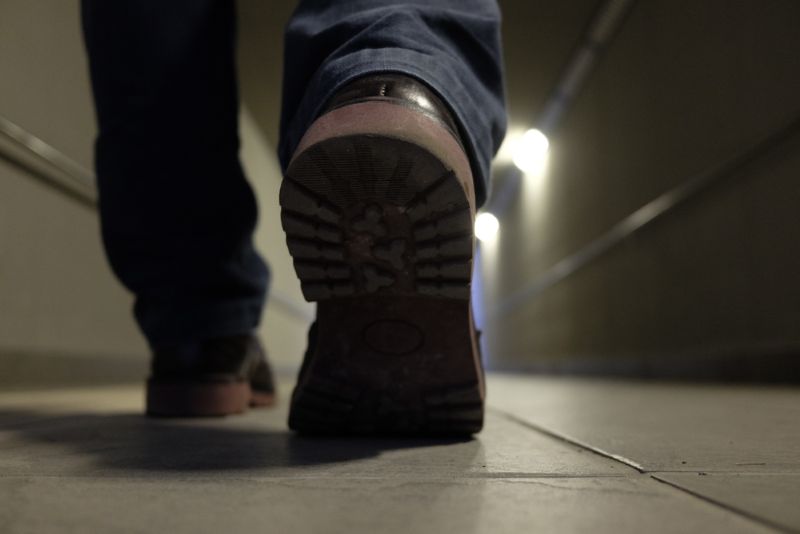Being charged with a violent crime in is a serious matter that can lead to harsh penalties, including imprisonment, fines, and a permanent criminal record. However, if you acted in self-defense, you may have a valid legal argument that can protect you from a conviction. Understanding New York’s self-defense laws and how they apply in violent crime cases is crucial if you’re facing serious charges.
In certain situations, New York law permits individuals to use force — even deadly force — to protect themselves or others from harm. If you were defending yourself, your family, or your property, proving self-defense may be key to your case.
How Does New York Law Define Self-Defense?
Under New York law, self-defense is legally referred to as Justification. According to New York Penal Law § 35.15, individuals are permitted to use physical force in certain situations if they reasonably believe it is necessary to defend themselves or others from imminent harm.
To successfully claim self-defense in a violent crime case, your actions must meet specific legal criteria. The following elements are essential to a valid self-defense claim:
1. Reasonable Belief of Threat
New York law requires that the person claiming self-defense must have had a reasonable belief that they were in imminent danger of physical harm. This belief must be based on what a reasonable person would have felt in the same circumstances.
For example, if someone aggressively threatened you with a weapon, your belief that you were in danger would likely be considered reasonable. However, if the perceived threat was vague or unlikely to result in harm, claiming self-defense may be more difficult.
2. Proportional Use of Force
In New York, the amount of force you use in self-defense must be proportionate to the threat you faced. This means you can only use the level of force reasonably necessary to protect yourself.
For instance, if someone shoves you during an argument, responding with lethal force would likely exceed the limits of justified self-defense. However, if someone attacks you with a knife, using significant force to stop the threat may be justified.
3. Imminent Danger
Self-defense is only justified if the danger you faced was immediate. If you believed harm might occur at some later time, using force may not qualify as self-defense under New York law. The threat must have been happening or about to occur at the moment you acted.
4. Duty to Retreat (in Certain Situations)
Unlike some states with “Stand Your Ground” laws, New York imposes a duty to retreat in certain self-defense situations. This means you must attempt to avoid or escape the threat before resorting to physical force — unless retreat is unsafe or impossible.
However, New York’s duty to retreat does not apply if:
- You are in your own home and faced with an intruder (commonly known as the Castle Doctrine).
- Retreating would place you or another person in greater danger.

When Can Deadly Force Be Used in Self-Defense?
New York law allows the use of deadly force in self-defense, but only under very specific circumstances. Deadly force may be justified if:
- The attacker was using or threatening to use deadly force against you or someone else.
- The person claiming self-defense reasonably believed that using deadly force was necessary to prevent death, serious physical injury, or a violent crime such as robbery or burglary.
For example, if an armed intruder breaks into your home and threatens your family, New York law may justify using deadly force to stop the threat.
What Violent Crime Charges Can Self-Defense Apply To?
Self-defense may be used as a defense in various violent crime cases, including:
- Assault: If you were defending yourself during a physical altercation.
- Homicide: If you used deadly force to protect yourself or someone else from a violent attack.
- Domestic Violence: If you acted in response to physical abuse or imminent harm.
- Weapons Charges: If you used a weapon to stop an immediate threat.
- Robbery or Burglary: If you used force to prevent an intruder from harming you or your family.
Common Challenges in Proving Self-Defense
While self-defense can be a powerful legal strategy, it often requires substantial evidence to convince prosecutors, judges, or jurors that your actions were justified. Common challenges include:
1. Disputes Over What Happened
Violent crime cases often involve conflicting stories. The other party may claim you initiated the confrontation, making it harder to establish your actions as self-defense. Witness statements, surveillance footage, and physical evidence can help clarify what occurred.
2. Lack of Evidence
Without clear evidence showing that you were acting to protect yourself or others, proving self-defense may be difficult. Gathering medical records, injury documentation, and expert testimony can strengthen your case.
3. Excessive Use of Force
Even if you were justified in defending yourself, using excessive force may weaken your defense. Demonstrating that your response matched the threat you faced is critical to a successful self-defense claim.
Steps to Strengthen a Self-Defense Claim in New York
If you believe self-defense played a role in your violent crime case, taking the following steps can improve your chances of building a strong defense:
1. Contact an Experienced Criminal Defense Attorney
Working with a knowledgeable lawyer is crucial when facing serious charges. An attorney can analyze your case, collect evidence, and develop a defense strategy tailored to your situation.
2. Document Your Injuries
Photographs of bruises, cuts, or other visible injuries can help demonstrate that you were attacked and acted out of self-defense.
3. Identify Witnesses
Witnesses who saw the altercation unfold can provide valuable testimony that supports your self-defense claim. Collect their contact information as soon as possible.
4. Gather Evidence of the Threat
Surveillance footage, text messages, threatening emails, or prior incidents of violence can help establish that the other party posed a legitimate threat to your safety.
Contact Uriel Criminal Defense for Legal Representation
Facing violent crime charges is a serious matter that can impact your future, reputation, and freedom. If you believe you acted in self-defense, it’s critical to have an experienced criminal defense attorney on your side who can build a compelling case on your behalf.
If you’ve been charged with a violent crime in Brooklyn or the surrounding areas, contact us today. At Uriel Criminal Defense, we are dedicated to protecting your rights and ensuring your side of the story is heard in court.



